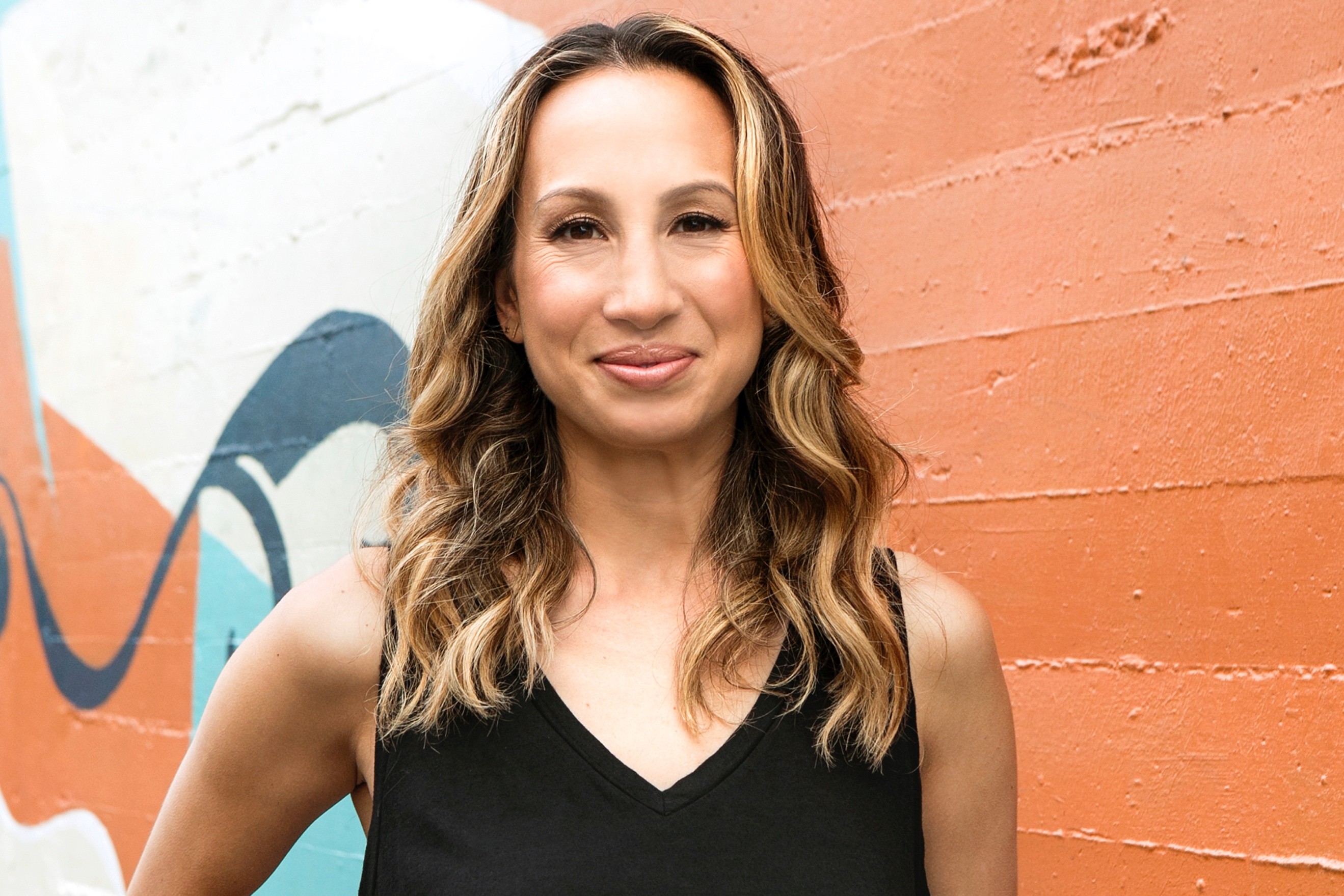Facebook想再增加10亿用户全靠她

|
6月份,Facebook发布了两项看似无关的公告。第一份公告昭示天下,这家社交网络现在拥有20亿月活跃用户。换言之,全球超过一半互联网用户都在使用Facebook。第二份公告宣称,自13年前成立以来,Facebook首次改变了其使命宣言。 在过去一年,这家社交网络经历了一波抨击风暴,从假新闻的肆意扩散,到新流媒体服务Facebook Live产生的意外后果(包括但不限于对性攻击,谋杀和警察暴行的直播),不一而足。 Facebook今年首次进入《财富》全球500强阵营,位列第393位。该公司最近宣布,其关注焦点将从“让世界更开放更互联”转变为“赋予人创建社群的权力,让世界融合在一起。” 这两个具有里程碑意义的时刻与同一位女士密切相关。她就是内奥米·格雷特。其官方职位是Facebook公司社会公益事务副总裁,但CEO马克·扎克伯格最近称她是“一位负责社区增长的女士。” 自她于2005年加盟以来,格雷特相继担任过许多职位。从斯坦福大学毕业后,她每周都会访问Facebook的硅谷办公室,直到她成为该公司的第29位员工。 |
Facebook made two seemingly unrelated announcements in June. The first was that the social network now has 2 billion monthly users, or more than half of Internet users globally. The second was that it was changing its mission statement for the first time since Facebook was founded 13 years ago. The social network has endured a fire storm of criticism in the past year, between the proliferation of fake news and unexpected consequences from its new streaming service, Facebook Live, including but not limited to the live-streaming of sexual assaults, murders, and police brutality. The company, joining the ranks of Fortune’s Global 500 for the first time this year at No. 393, recently declared that its focus would shift from making “the world more open and connected” to giving “people the power to build community and bring the world closer together.” These two landmark moments have one woman in common: Naomi Gleit, whose official title is Facebook’s vice president of social good, but whom CEO Mark Zuckerberg recently described as “the woman in charge of growing our community.” Gleit has worn many hats at Facebook since she joined in 2005. She visited Facebook’s Silicon Valley offices every week after graduation from Stanford University until she became the company’s 29th employee. |
|
格雷特表示,“我知道这听起来有点奇怪,但我很坚定,我非常清楚马克将成为一个大人物。对于这一点,我几乎秉持一种宗教般的信仰。” 今天,她是在Facebook效力最长久的员工——当然没有CEO的供职时间长。 在担任社会公益副总裁的同时,格雷特还是Facebook核心增长团队的八位成员之一。过去十年以来,该团队一直致力于让更多人加入Facebook。2006年,他们只需简单地将这个大学生专用网站向高中生开放,就可收获大批用户。然后,这家网站欢迎美国民众加入其中。她在公司肩负的职责随着网站的扩大而不断延伸。 为了获得用户,这支团队开始求助于数据,悉心剖析注册流程的“痛点”和日常使用情况。拜这些坚实的数据所赐,他们能够投入资源将网站翻译成100种语言,并为发展中国家那些饱受蜗牛网速之苦,缺乏移动设备的用户创造了一个名为Facebook Lite的精简版网站。 用该公司的行话说,格雷特的职责是“做好事,并为人们创造做好事的工具。”对于日常用户来说,这一职责体现在诸如“安全检查”这类功能上——这种工具可以让身处受影响地区的人们安全地登陆Facebook(并知会他们的网络商)。她还负责创建Facebook的筹款工具,致力于让非营利性组织和个人更容易在该平台上筹集资金。 选择格雷特领衔社会公益团队,形象地体现了扎克伯格确立的优先事项。她此前被委以负责高度优先项目之重任,比如改进隐私设置。除了在2015年公开承诺捐赠其99%的财富之外,扎克伯格一直设法将Facebook确定为一个推动世界变得更加美好的媒介——这一点在该公司的新使命宣言中得以明确体现。 6月份在Facebook社区峰会上发表演讲时,他宣称,“我们必须建立一个每个人都有目标和社区感的世界。我们必须建立一个我们像关爱美国人那样关爱印度人、中国人、尼日利亚人或墨西哥人的世界。” 对于许多Facebook用户来说,这种谈话与扎克伯格在2010年的电影《社交网络》中刚愎自用的形象并不一致。格雷特表示,自从加入Facebook以来,她亲眼见证了扎克伯格利他主义的一面。“我已经看到了这种企图心。但我不知道为什么马克在21岁的时候就觉得他需要拯救世界。”她说。 扎克伯格可能首先会拯救自己的国家。在外界抨击Facebook在2016年美国总统大选期间没有采取足够的措施来遏制假新闻之后,这位CEO宣布他将遍访美国50个州,以切身感受当前政治气候的脉搏。扎克伯格经常不声不响地现身一些小企业和市政厅会议。这趟旅行已经引发了关于他未来有可能竞选总统的猜测。 在Facebook,格雷特正在从事一份为她量身定做的工作。目前的最大挑战是,如何吸引下一个10亿用户。这番努力肯定不同于Facebook招募其第一个,甚至第二个10亿用户的方式,这很可能是因为他们面临一大障碍:互联网接入。全球目前仅有不到一半人口能够享受互联网服务。为了实现这一目的,该公司于2013年推出Internet.org——这是一项旨在为发展中国家提供低成本,高带宽互联网的举措。但批评家们很快就以网络中立原则为由,宣称这种连接可能会将Facebook的服务放在首位。 同时,社会公益团队的一大关注焦点是,如何让Facebook Live获得最佳应用,推动它成为一股向善的力量。格雷特说,她已经看到了成功的迹象。比如,许多观众在Facebook Live上观看“爱在曼彻斯特”公益演唱会,并通过Facebook为这座刚刚遭受恐怖袭击的英国城市捐赠了总额近50万美元的善款。 格雷特说,“技术本身无所谓好坏。我们希望最大限度地张扬其向善的一面,最大限度地减少用它作恶的几率。”(财富中文网) 译者:Kevin |
“I know that sounds a bit weird, but I was adamant, and I had extreme clarity that Mark was going to be an important person,” Gleit says. “I almost had a spiritual belief.” Today she’s Facebook’s longest-tenured employee—after its CEO, of course. While vice president of social good, Gleit has also served as a member of the company’s eight-person core growth team. For the past decade, the team has been focused on getting more people to join Facebook. In 2006 this was as simple as opening up the college-only site to high school students. Then to the U.S. population at large. As the site expanded, so did her duties at the company. To acquire users, the team turned to data, dissecting the pain points of the registration process and daily use at the most granular level. Armed with hard numbers, they were able to dedicate resources to translating the site into 100 languages and to creating a “Facebook Lite” for users in developing countries, who have to contend with slow Internet speeds and basic mobile devices. In corporate speak, Gleit’s role is to “do good and build tools for people to do more good.” For everyday users, this can be seen with features like Safety Check, a tool that lets people in an affected area check in as safe (and notify their networks). She also led the charge in creating Facebook’s fundraising tool, making it easier for nonprofits and individuals to raise money on the platform. Tapping Gleit—who previously has been tasked with high-priority projects like revamping privacy settings—to lead the social good team is illustrative of Zuckerberg’s priorities. In addition to publicly pledging in 2015 to give away 99% of his wealth, he has been trying to position Facebook as a medium for making the world a better place—now explicit in the new mission statement. “We have to build a world where everyone has a sense of purpose and community,” he said in June at Facebook’s Communities Summit. “We have to build a world where we care about a person in India or China or Nigeria or Mexico as much as a person here.” For many Facebook users, this kind of talk is at odds with the headstrong reputation Zuckerberg acquired in the 2010 film The Social Network. Gleit says she’s seen Zuckerberg’s altruistic side since joining Facebook. “I already saw this intention,” she says. “I don’t why, but at 21, Mark felt that he needed to save the world.” Zuckerberg might be starting closer to home first. After criticism flew that Facebook didn’t do enough to curb fake news during the 2016 U.S. presidential election, the CEO announced he would tour all 50 states to take a pulse on the current political climate. Popping up at small businesses and town halls seemingly without notice, his trip has sparked speculation about a future presidential run. Back at Facebook, Gleit has her work cut out for her. The biggest challenge now is reaching the next billion users—and the way to do that will look nothing like the way Facebook recruited its first or even second billion, likely because of one barrier: Internet access. Less than half the world’s population can currently get online. To that end, the company launched Internet.org in 2013, an initiative to provide low-cost, high-bandwidth Internet in developing countries. But critics quickly argued on net neutrality grounds that the connections might prioritize Facebook’s services. Meanwhile, a major focus of the social good team is figuring out how Facebook Live can best be used for good. Gleit says she has already seen success. Viewers of the One Love Manchester benefit concert, for example, in the aftermath of a terror attack on the U.K. city, collectively donated nearly half a million dollars via Facebook. “Tech is not inherently good or bad,” Gleit says. “We want to maximize the good and minimize the bad.” |













